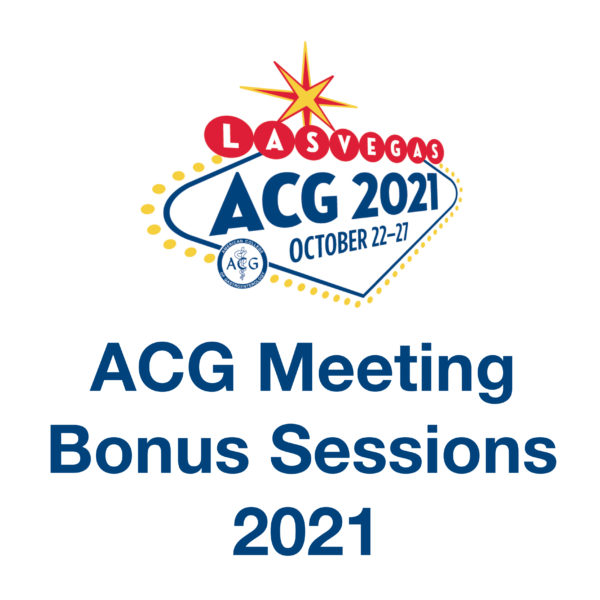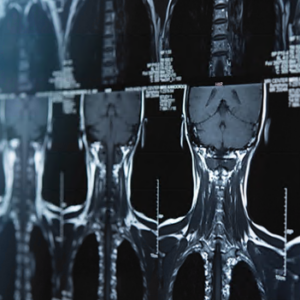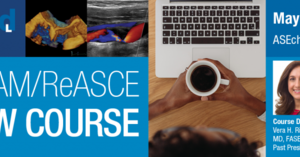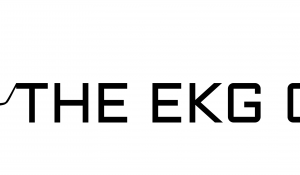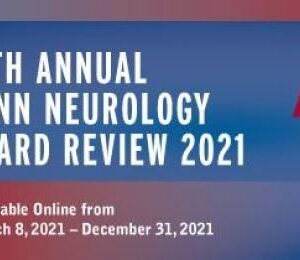|
Bonus Session A: Addressing Health Disparities in Various GI Conditions
Moderator: Folasade P. May, MD, PhD, MPhil
- GI Cancer Disparities: Challenges and Solutions
Folasade P. May, MD, PhD, MPhil
Describe the impact of disparities in GI cancers and identify approaches to increase screening rates and access to care in populations most at-risk.
- Liver Transplant Continuum Among Marginalized Minorities: Identifying and Overcoming Obstacles
Julius M. Wilder, MD, PhD
Recognize the barriers to liver transplantation that marginalized populations often encounter and define strategies to achieve equity in transplantation.
- IBD Disparities in Minority Communities: Bridging the Gap
Adjoa N. Anyane-Teboa, MD, MPH
Identify racial and socioeconomic status inequities to accessing and utilizing IBD-related care.
|
|
Bonus Session B: Let’s Play Video: Recognizing Endoscopic Features of IBD
Moderator: Anita Afzali, MD, MPH, FACG
- The Trailer: Endoscopic Activity — Describe What You See
Anita Afzali, MD, MPH, FACG
Assess various levels of endoscopic activity and commonly used endoscopic scores in IBD.
- The Watchful Eye: Colorectal Cancer and Dysplasia Surveillance
David T. Rubin, MD, FACG
Describe endoscopic dysplastic surveillance in IBD and identify visible, discreet, and resectable lesions.
- After the Final Cut: Endoscopic Post-Surgical Anatomy in Crohn’s Disease
Miguel D. Regueiro, MD, FACG
Differentiate various forms of post-surgical anatomy and recognize surgical complications during endoscopy.
|
|
Bonus Session C: Getting to the Skinny on NAFLD & NASH
Moderator: Manal F. Abdelmalek, MD, MPH, FACG
- Evaluation of NAFLD/NASH Initial Work-Up and Current Treatment Options
Manal F. Abdelmalek, MD, MPH, FACG
Describe an evidence-based approach to the initial work-up for non-alcoholic fatty liver disease and non-alcoholic steatohepatitis, along with current treatment options, including lifestyle modifications and weight loss.
- Future Medical Treatments for NAFLD/NASH
Naim Alkhouri, MD
Summarize evolving and future strategies for NASH treatment, including clinical trial data and implications for clinical practice.
- Bariatric Endoscopic and Surgical Approaches to Weight Loss for Fatty Liver Disease: What to Use When
Pichamol Jirapinyo, MD, MPH, and Julie K. Heimbach, MD, FACS
Discuss and compare the role of current and evolving techniques for bariatric endoscopy vs. bariatric surgery, and their potential role in the management of non-alcoholic fatty liver disease.
|
|
Bonus Session D: Opening Up the Pipes Throughout the GI Tract
Moderator: Jason B. Samarasena, MD, FACG
- The Cutting Edge of Esophageal Strictures
Jason B. Samarasena, MD, FACG
Discuss esophageal stricture types (benign, malignant, refractory) as well as the optimal endoscopic approach for each (dilation, incisional therapy, stent, newer techniques).
- Malignant Gastric Outlet Obstruction: Duodenal Stent, LAMS, or Surgery?
Richard A. Kozarek, MD, FACG
Compare outcomes for managing GOO with duodenal stent, EUS-guided gastroenterostomy with LAMS, and surgery; and discuss selection of optimal approach and endoscopic techniques.
- From Volvulus to Colonic Strictures: Endoscopy Versus Surgery
Rebecca A. Burbridge, MD
Outline best approaches for treating colonic volvulus and benign and malignant colonic strictures, including dilation and stent versus surgery.
|
|
Bonus Session E: Poopourri: Common Diarrheal Conditions of the Small Bowel
Moderator: Baharak Moshiree, MD, MSc
- Small Intestinal Bacterial Overgrowth: What’s New?
Baharak Moshiree, MD, MSc
Describe the most up-to-date diagnostic and treatment approaches for SIBO.
- Exocrine Pancreatic Insufficiency: Optimizing Your Practice
Jodie A. Barkin, MD
Recognize symptoms of and treatment approaches for exocrine pancreatic insufficiency and identify consequences if left untreated.
- What’s on the Horizon for Celiac Disease and Non-Celiac Gluten Sensitivity: Serologies, Dietary, and Non-Dietary Therapies
Benjamin Lebwohl, MD, MS
Explore new developments in serologic testing, dietary modification, and pharmacologic therapies for celiac disease and non-celiac gluten sensitivity.
|
|
Bonus Session F: Eosinophilic Esophagitis: Present and Future
Moderator: Amiko M. Uchida, MD
- EoE Diagnosis and Management in Adult vs Pediatric Populations
Amiko M. Uchida, MD, and Jacob Robson, MD
Discuss special considerations needed for evaluating and treating EoE in children compared to adults.
- EoE Treatment: Predicting Success or Failure
Joy W. Chang, MD
Recognize how specific endoscopic or clinical characteristics predict treatment responses and failures in patients with EoE.
- Future of EoE: Do We Know What We Don’t Know?
Ikuo Hirano, MD, FACG
Review controversial aspects to treatment and describe how physician-patient shared decision making can aid in management of difficult patients with EoE.
|
|
Bonus Session G: Liver Potpourri
Moderator: Joseph K. Lim, MD FACG
- Liver Diseases and Pregnancy
Nancy S. Reau, MD, FACG
Discuss the management of chronic liver diseases in the context of pregnancy, and review evidence-based guidance in the evaluation and treatment of the pregnant patient with intrahepatic cholestasis, acute fatty liver, and HELLP syndrome.
- Fibrosure, Fibroscan, and Beyond: Using Non-Invasive Liver Fibrosis Tests in Clinical Practice
Joseph K. Lim, MD, FACG
Review current guidelines on non-invasive liver fibrosis tests, such as serum fibrosis assays and imaging-based elastography, in clinical practice for patients with viral hepatitis and other chronic liver disorders.
- The Epidemic of Alcoholic Hepatitis: STOPAH the Steroids or Not? Transplant or Not?
Ashwani K. Singal, MD, MS, FACG
Summarize new guideline recommendations in the evaluation, diagnosis, and management of severe acute alcoholic hepatitis, including the role of corticosteroids and liver transplantation.
|
|
Bonus Session H: Cutting the Fat: Bariatrics for the Gastroenterologist
Moderator: Pichamol Jirapinyo, MD, MPH
- Medical Management of Obesity
Shelby A. Sullivan, MD, FACG
Discuss different options for medical management of obesity including diet, exercise, and medications.
- Primary Endoscopic Bariatric and Metabolic Therapies
Christopher C. Thompson, MD, MSc, FACG
Describe when to offer primary endoscopic treatment for obesity and explore current endoscopic options along with their safety and efficacy outcomes.
- Endoscopic Treatment of Weight Regain Following Bariatric Surgery
Pichamol Jirapinyo, MD, MPH
Outline the endoscopic approach to treating weight regain following Roux-en-Y gastric bypass and sleeve gastrectomy.
|
|
Bonus Session I: Viral Infections and the Liver
Moderator: Stanley M. Cohen, MD, FACG
- Emerging Concepts in the Evaluation and Management of Hepatitis A and E
Mitchell L. Shiffman, MD, FACG
Summarize the changing epidemiology, natural history, diagnosis, and management of acute hepatitis A and E infections.
- Hepatitis B Management: Challenges and Controversies
Stanley M. Cohen, MD, FACG
Discuss evidence-based approaches to challenging issues in hepatitis B management including the care of chronic HBV in pregnancy, and the evaluation, prevention, and management of HBV reactivation in patients undergoing immunosuppressive drug therapy.
- Hepatitis C Treatment Issues: Elimination, DAA Failures, Special Populations, Reactivation
Kimberly A. Brown, MD
Review evidence-based guidelines addressing current challenges and controversies in HCV therapy, including HCV elimination, treatment of DAA failures and special populations, and the association between DAAs and both HCC and HBV reactivation.
|
|
Bonus Session J: Anorectal Disorders
Moderator: Waqar A. Qureshi, MD, FACG
- Motility Disorders of the Anorectum
Lavanya Viswanathan MD, MS
Identify when to order, how to interpret, and how to optimize treatments of various anorectal disorders using anorectal manometry.
- Office Management of Hemorrhoids and Fissures
Waqar A. Qureshi, MD, FACG
Explain the technique of a well-performed rectal exam, as well as medical and non-medical treatments for hemorrhoids and anal fissures, and the complications of anal fissures and hemorrhoid-based disease.
- Pruritus and Proctalgia Management
Satish S. C. Rao, MD, PhD, FACG
Describe the pathophysiology of and differences between pruritis ani and proctalgia fugax, and how to optimize treatment of each.
|
|
Bonus Session K: Laser-Focused on IBD Targets – Disease Monitoring Strategies
Moderator: Edith Y. Ho, MD, MS, FACG
- Pin-Pointing Therapeutic Targets in Ulcerative Colitis
Edith Y. Ho, MD, MS, FACG
Incorporate updated recommendations for assessing UC disease activity.
- Zooming in on Therapeutic Targets in Crohn’s Disease
Bruce E. Sands, MD, MS, FACG
Summarize invasive and non-invasive strategies for achieving therapeutic goals in Crohn’s disease.
- Locking in on Perianal Disease IBD Targets
David A. Schwartz, MD, FACG
Formulate treat-to-target strategies in managing perianal Crohn’s disease.
|
|
Bonus Session L: ACG’s New Guidelines on Clinical Use of Esophageal Physiologic Testing: How I Do It
Moderator: C. Prakash Gyawali, MD, MRCP, FACG
- Obstructive Symptoms: How Best to Sort Out Dysphagia and Regurgitation
C. Prakash Gyawali, MD, MRCP, FACG
Explain best approaches to obstructive symptoms with and without concurrent reflux symptoms.
- Typical and Refractory Reflux Symptoms: Making the Most of Our Diagnostic Toolbox
Amit Patel, MD
Compare and contrast different approaches to the evaluation of reflux.
- Extra-Esophageal and Atypical Symptoms: How We Can Do Better
Charlene Prather, MD, MPH
Discuss current limitations in diagnosing extra-esophageal reflux (cough, LPR), and how improved patient evaluation can lead to improved management.
|
|
Bonus Session M: Hot Topics in Barrett’s Esophagus
Moderator: Christine Y. Hachem, MD, FACG
- What’s New in BE Screening and Surveillance
Prateek Sharma, MD, FACG
Review pearls of screening and surveillance in Barrett’s esophagus.
- What’s New in BE Ablation/Prevention
Sachin B. Wani, MD
Discuss new ablation protocols and data for prevention in Barrett’s esophagus.
- Managing Difficult and Refractory BE – A Case-Based Discussion
Christine Y. Hachem, MD, FACG
Identify management strategies for difficult or refractory Barrett’s esophagus.
|
|
Bonus Session N: Practicing Medicine in the Digital Age
Moderator: Amy S. Oxentenko, MD, FACG
- Telemedicine in GI – A Revolutionary Practice Platform in the Post-COVID-19 World
Eric D. Shah, MD, MBA, FACG
Outline ways to incorporate telemedicine into your daily clinical practice in the post-COVID-19 world.
- Building Your Brand: Using Social Media to Improve Your Practice
Amy S. Oxentenko, MD, FACG
Recognize how to maximize your social media experience while avoiding potential pitfalls.
- Incorporate Emerging Technologies and AI Into Your Daily Practice
Seth A. Gross, MD, FACG
Explore the new frontiers of cutting-edge technology and the use of artificial intelligence in GI practice.
|
|
Bonus Session O: Hepatology Consults: Case-Based Explorations
Moderator: Ayse Aytaman, MD, FACG
- Evolving Management of Portal Hypertension: Beyond Non-Selective Beta Blockers
Guadalupe Garcia-Tsao, MD, FACG
Discuss emerging evidence to guide clinical decision-making in the management of cirrhotic portal hypertension, using statins, microbiome, DOACs, albumin, and TIPS.
- New Approaches to Diagnosis and Management of DILI
Haripriya Maddur, MD
Review evidence-based guidance on the evaluation and management of drug-induced liver injury including immune checkpoint inhibitor-associated hepatitis.
- Evidence-Based Approach to Liver Masses and the Role of LI-RADS
Ayse Aytaman, MD, FACG
Outline current guideline recommendations in the evaluation, diagnosis, and management of patients with liver lesions, and describe the utilization of LI-RADS, a standardized radiologic classification system for liver lesions.
|

